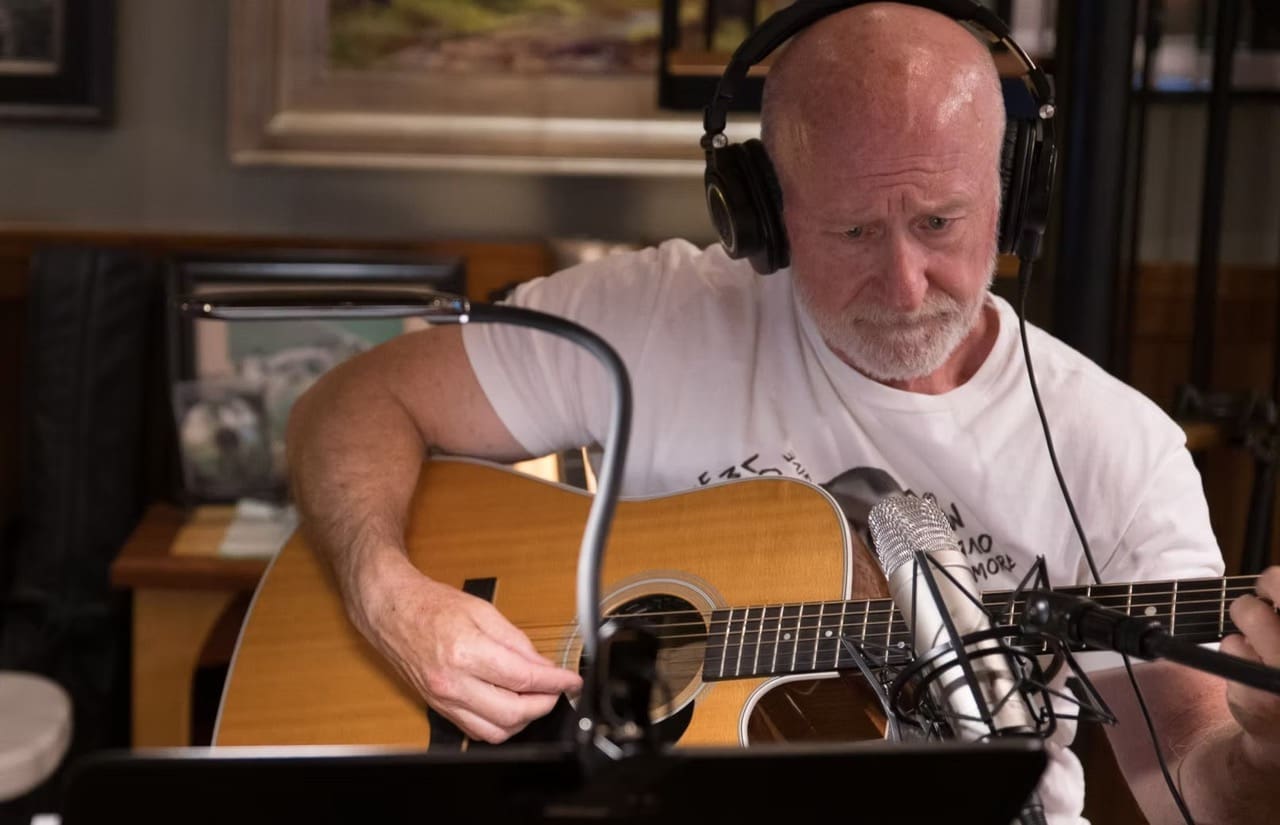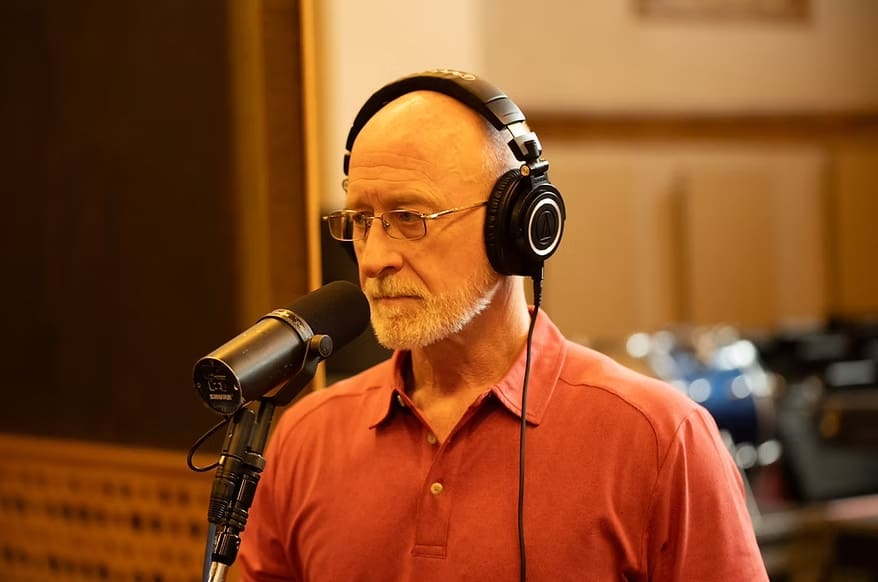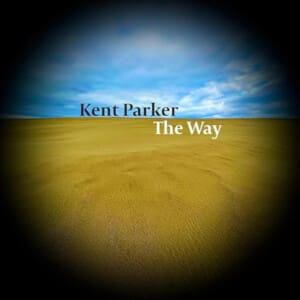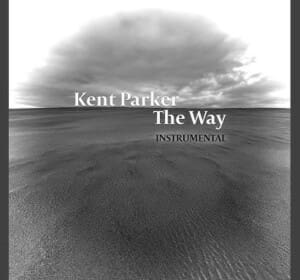
Kent Parker dedicated the majority of his professional life helping people achieve their dreams. Yet, his passion for his music, which began at a young age, laid quasi-dormant. While he played covers, and worked on his musicianship as a guitarist and harmonica player, it was not until 2019 when he put pen to paper and started writing music that he found, “the way.”
The “way” is his path to his current position in life — as a singer/songwriter who has penned dozens upon dozens of songs, been the subject of a PBS documentary, has released two versions of his debut album, and is currently constructing his second record.
Recently, we caught up with Kent Parker to discuss his first album The Way, recording with his childhood hero, what led him back into music in 2019, and so much more.
You recently released the instrumental version of your 2025 album The Way — can you explain what inspired you to do this?
I’ve always believed that great musical compositions carry their own emotional language, even without words. The songs on The Way came from deeply personal experiences, and I wanted listeners to connect with that emotion purely through the music — to feel the story without the words. When I listened back to the tracks without vocals, I was struck by how strong and expressive the performances were — the musicianship, the interplay, and the overall feel of the record took on a new dimension. The instrumental version lets those arrangements breathe; it’s the same journey, but told through sound, texture, and space rather than lyrics.
I’ve also really enjoyed creating music videos — adding a visual interpretation to the storytelling within the songs. It’s become an art form of its own for me, a way to expand how the music connects with listeners emotionally and to let the songs speak in another dimension.
My most recent video, “Even If,” expands on that creative exploration, offering a visual reflection on resilience and grace, themes that run through The Way. It gave me another opportunity to express the heart of the music in a new and different way.
The Way is your first full-length record, and you’ve had a long road to get to be a full-time musician. How do you feel now that the album is out there for people to listen to? Relief? Satisfaction? A desire to do it again?
It’s a mix of relief, gratitude, and inspiration. After years of writing and recording, hearing the finished album felt like taking a deep breath after holding it for a long time. There’s satisfaction in knowing the music found its way into the world — but also a sense of energy to keep going.
Creating The Way reminded me how much I love the process itself — collaborating with great players, shaping sound, and watching ideas turn into something lasting. Now that it’s out, I’ve already started planning my second album. I want to take things in a different direction sonically, while keeping the same focus on storytelling and emotional depth that defined The Way. It’s exciting to be in that early phase again — exploring ideas, writing freely, and deciding where I want to go next with my music.
You worked with Charlie McCoy on this album — someone who is a childhood hero of yours. How did you get to work with him on the album? Also, were there any lessons that you took away from working with him — whether as a musician or as a person?
Charlie McCoy was the reason I picked up a harmonica as a kid. I learned to play by listening to his records, so to have him play on my album was surreal. I reached out, sent him some tracks, and he said yes — no ego, no hesitation.
When he came into the studio, he was pure joy and professionalism. What struck me most was his genuine love of music, and his willingness to explore new work and new ideas from someone new to the craft of making an album. After decades of playing, he still approaches every song with the excitement of someone discovering music for the first time. That kind of curiosity and energy is contagious — it reminds one of why we make music in the first place. Working with Charlie reinforced something I’ve come to believe: the greats never stop being curious, and it’s that humility and sense of wonder that keep creativity alive. Creativity isn’t something you conquer and then point back to as proof it still exists within you; it’s an ongoing journey — freely available to anyone willing to pursue it.
What inspired you to dive into the world of music back in 2019?
Much of my business career was spent helping entrepreneurs build and grow their companies — taking ideas and turning them into something real and durable. It was incredibly rewarding, but I eventually realized I’d spent decades helping others pursue their passions without ever taking the time to fully explore my own. I’d always played harmonica and guitar, but around 2019 something shifted.
My relationship with music moved away from playing favorite covers or trying to improve technically as a musician — a never-ending pursuit — to using those instruments as tools for creating and expressing my own original songs. Once I started writing, my excitement for music went into overdrive — or maybe “warp drive” is a better description. Songwriting opened up an entirely new dimension for me, and that’s when I knew I wanted to pursue it in a serious and sustained way.
What has been the most frustrating part of being a musician, and the most rewarding?
As hard as it is to make a great album, it’s equally hard to get your music heard. There’s so much content released every day that even meaningful work can get buried. That part can be frustrating — knowing you’ve created something with depth, yet it takes persistence and time for it to find its audience. What makes it more challenging is that so much of what an independent songwriter or musician has to do to be heard isn’t really about making music at all.
It’s business administration — communicating, marketing, promotion, analytics, social media. You can easily find yourself spending more time managing and promoting than creating. That phase can feel tedious and, if you’re not careful, a bit disconnected from the simple joy of writing and recording. It’s a tricky balance — protecting the creative side while doing the hard work it takes for your music to reach people.
Beyond the challenges of simply getting one’s music heard, there’s also a new disruption reshaping the creative landscape — AI technology. Technology has always influenced how music is made — from the invention of the electric guitar to synthesizers, sound pedals, DAWs, and auto-tune. It’s inevitable that technology will continue to shape the way people approach their creative process, refine their sound, and polish their production. But the coming tidal wave of AI-driven capabilities feels like something different — a shift from the augmentation of creative discovery to the automation of it. At some point, the question becomes: who (or what) is really creating the art?
Watch Kent Parker on The PBS Passport Documentary on the making of ‘The Way’ here.
We’re now seeing musical works that are minimally inspired — created without the years of learning, the trial and error, or the emotional investment that come from truly living the craft. A person can simply seed an AI application with the skeleton of an idea, and the song will be composed and finished for them. People can type a few lines of text into a program, sing or even just speak some vocals into an AI application, and get a polished song back almost instantaneously. One can even ask the technology to mimic other artists — their vocal tone, production sound, even the arrangement. At some point, what exactly is this? It doesn’t feel like a creative process so much as a replication exercise — an impressive simulation of art, but one missing the human spark: the imperfection, struggle, and emotion that give music its soul.
I’m convinced that, at the end of the day, people will continue to connect with and appreciate authenticity — music that carries the real effort, the real struggle, and the real human spirit behind it. The most rewarding moments for me happen quietly, when someone reaches out to say a song meant something to them. That’s when you realize music still cuts through all the noise — that it remains one of the most powerful forms of human communication and connection. An expressive idea or emotion, shaped with real human effort and thoughtful intention, can somehow find its way into the emotional space of another person. That’s the real reward — knowing that something genuine you created reached someone else in a meaningful way.
Do you have any plans on touring in the near future?
I don’t have any touring plans right now. I’ve always been more drawn to the creative side of making music than to performing on stage. I love the process of building songs in the studio — shaping sounds, layering textures, and finding those emotional moments that happen in the process of defining a new song for the first time. That’s where the magic is for me. I treat what I do seriously and run it as a professional endeavor, but my motivation comes primarily from songwriting — from the process of writing, creating, and producing music that feels genuine. Performing live is a true art form, and I have great admiration for those who do it well. My path just happens to be different — my inspiration and fulfillment come from the quieter side of creation, in the writing and studio work that bring songs to life. I’m already deep into planning my next album, and that’s where my focus will stay for now.
Speaking of touring, you and your wife are avid travelers. How has this experience of going to all 50 states and over 70 countries shaped your perspective when it comes to songwriting?
Traveling changes how you listen. Every place has its own rhythm — the way people talk, move, and live — and those subtleties naturally find their way into my writing. Through our StateQuest journey — living for a month in every USA state — my wife Laurie and I have experienced the incredible variety of landscapes, cultures, and stories that make up the United States. When you add that to visiting more than 70 countries abroad, you start to see how universal emotion really is, no matter the geography or culture. Whether it’s an historic city in Europe, a remote village in Africa, or a small town in the Midwest, people share the same core truths — love, loss, hope, renewal — just expressed in different accents and forms of expression. Seeing the world that way broadens your empathy, and that inevitably shapes how you write songs.
What are 5 things you are excited for in your music career for the remainder of 2025 and into 2026?
I’m ready to put a little distance between myself and The Way. I’ve lived and breathed the album for the past two years, and it’s time to create some space — mentally and creatively — to focus on what’s next. Right now, I’m working across three separate portfolios of about 40 new songs, each collection with its own writing style and concept. My goal is to figure out which one feels the most honest and compelling as a complete work, and to start shaping my second album around that direction.

With this in mind, here are five things I’m excited for in the coming year:
To take the best of what I’ve learned from The Way and apply it to a fresh, new body of work.
To get back into the studio next year and begin producing my second album.
To explore new sonic directions and arrangements that stretch beyond what I’ve done before.
To collaborate with new musicians and creative partners who bring different perspectives and ideas to the table.
To keep evolving as a songwriter — staying curious, open, and grounded in the joy of creating something meaningful.



